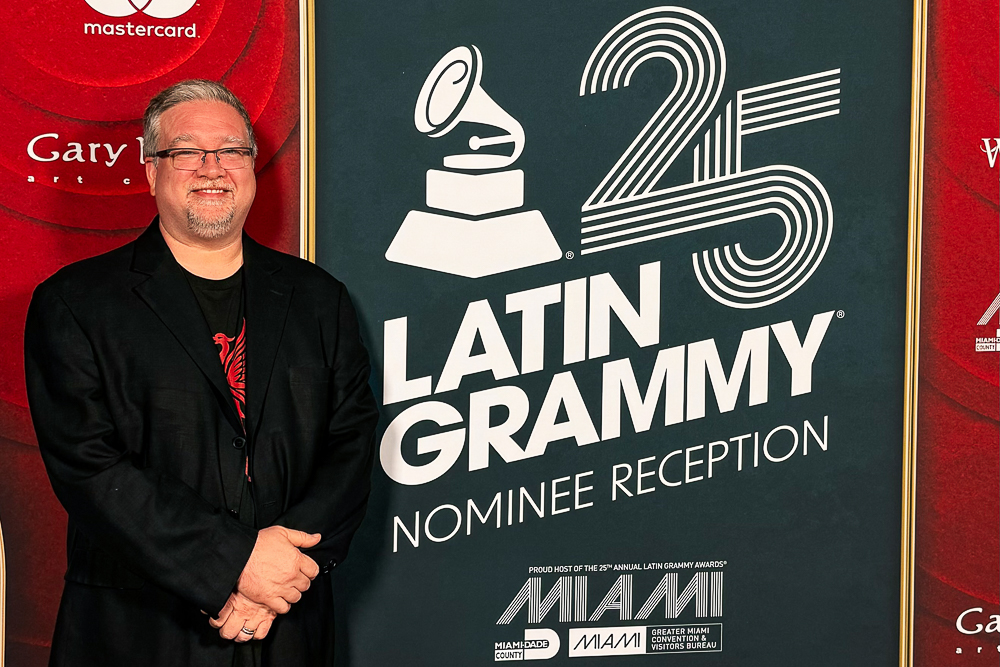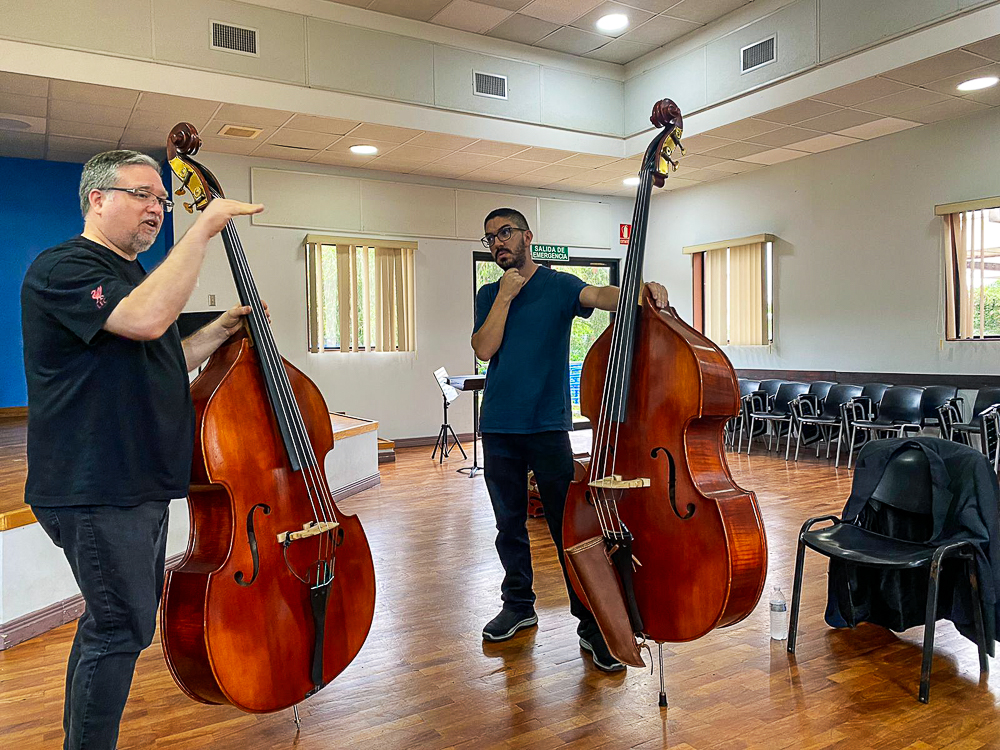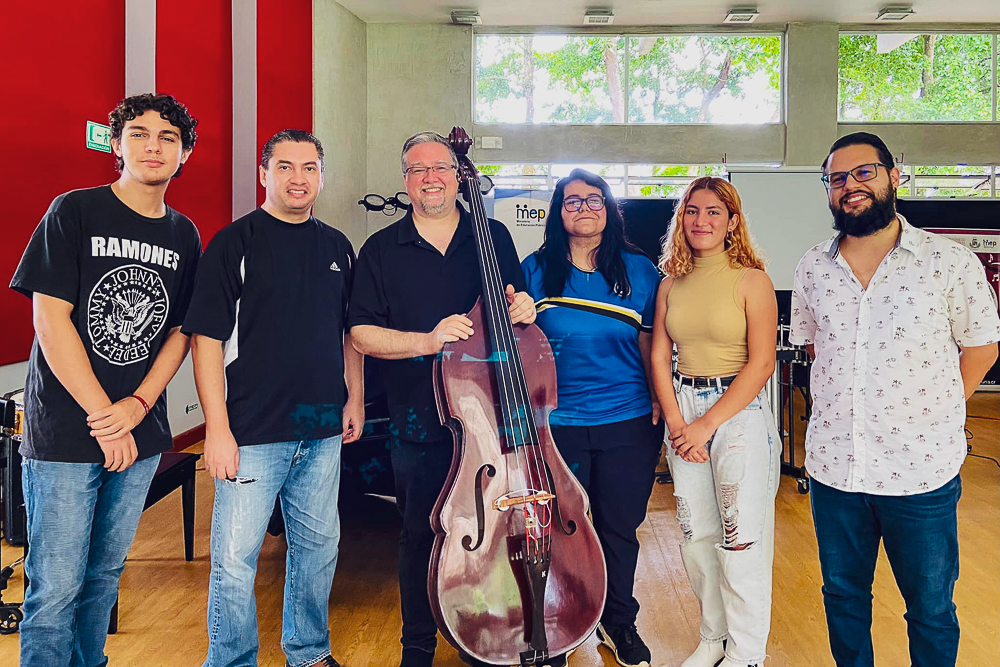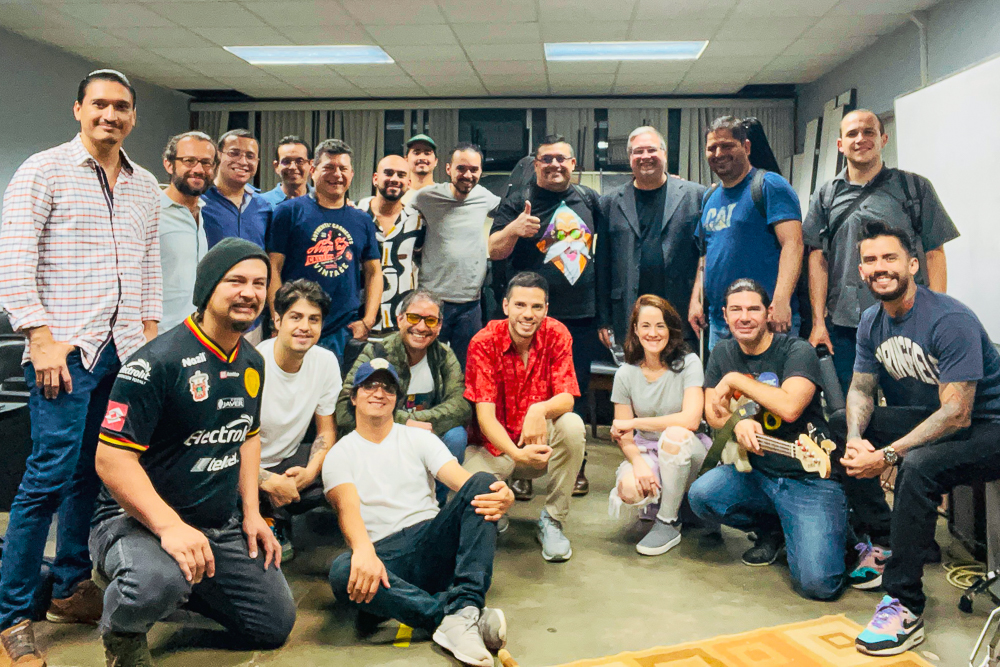
When Jamie Ousley arrived in Costa Rica as a Fulbright Specialist, he had one goal in mind: to help strengthen the country’s first graduate-level jazz studies program. Little did he know that his visit would not only make a lasting impact on music education in the region but also lead to a Latin Grammy nomination.
As the coordinator of jazz performance at Florida International University (FIU) and an accomplished jazz bassist, Ousley was well-equipped to assist the inaugural cohort in Universidad Nacional’s master’s program in Jazz Studies. For two weeks, he served as a guest lecturer in jazz composition, conducted masterclasses on improvisation and ensemble skills, and worked one-on-one with students, many of whom are already active in the region’s burgeoning jazz scene.
The program is believed to be the first of its kind in the region, providing a critical pathway for students who do not have the financial resources to travel to the United States for further studies. “I got the chance to impact the future and current jazz teachers of the region,” Ousley explained.


While in Costa Rica, Ousley also contributed to an album, Claude Bolling Goes Latin, with UNA professor and percussionist Carlomagno Araya. The recording is a Latin jazz interpretation of Claude Bolling’s classical Suite for Flute and Jazz Piano Trio, album. Araya’s jazz-update featured Ousley on bass with Costa Rican and international artists, and recently earned a Latin Grammy nomination for Best Instrumental Album.
Ousley expressed his excitement about the nomination, noting that it was a great honor to be recognized and participate in the Latin Grammys in Miami. The awards ceremony was also his first opportunity to meet some of his fellow collaborators who remotely recorded their portions of the album.
Based on the success of this recording, Ousley already has plans to return to Costa Rica next year, the 50th anniversary of Claude Bolling’s original piece, for a performance of Claude Bolling Goes Latin at the National Theater. “I’m also encouraging our department to form a memorandum of understanding with UNA,” he shared, envisioning opportunities for faculty and student exchanges, joint performances, and other projects that could benefit both institutions and support the growth of this historic program in Costa Rica.
“Professor Ousley’s time at Universidad Nacional has sown the seeds for future exchanges with FIU’s Herbert and Nicole Wertheim School of Music & Performing Arts,” said Gitta Rausch-Montoto, director of FIU Global. “His success underscores the value of global academic and artistic collaboration, demonstrating how in partnership with Fulbright our faculty can grow FIU’s impact locally and globally.”
One of the highlights of Ousley’s trip was the opportunity to connect with students outside of the classroom. “Just hanging out and playing with them at a local hole-in-the-wall bar — some were playing very well and some were not as experienced, but seeing how cooperative and enthusiastic they were about listening to each other play,” Ousley recalled, “that was probably my favorite part of the experience.”
Reflecting on the importance of international collaboration in jazz education, Ousley emphasized the barriers many aspiring musicians face in accessing opportunities to study the art form. “Jazz is regarded as our original American musical art form. It was born in the United States, but there have been people all around the world interested in learning jazz,” he explained. “That’s why it’s important for us to go, if there’s interest in our art form, to share it so they can do it there at their own university,” Ousley said. “It’s like having a native speaker come teach a language — it brings a different flavor.”

The Fulbright Specialist Program, a short-term complement to the Fulbright U.S. Scholar Program, sends more than 400 experienced U.S. faculty and professionals abroad annually to serve as expert consultants and engage in education and/or training activities for a period of two to six weeks. Specialists, who represent a wide range of professional and academic disciplines, are competitively selected to join the Fulbright Specialist Roster based upon their expertise and ability to make a significant contribution to institutions abroad. Individuals on the Roster are then eligible to be matched with approved projects, which are proposed by eligible overseas institutions.